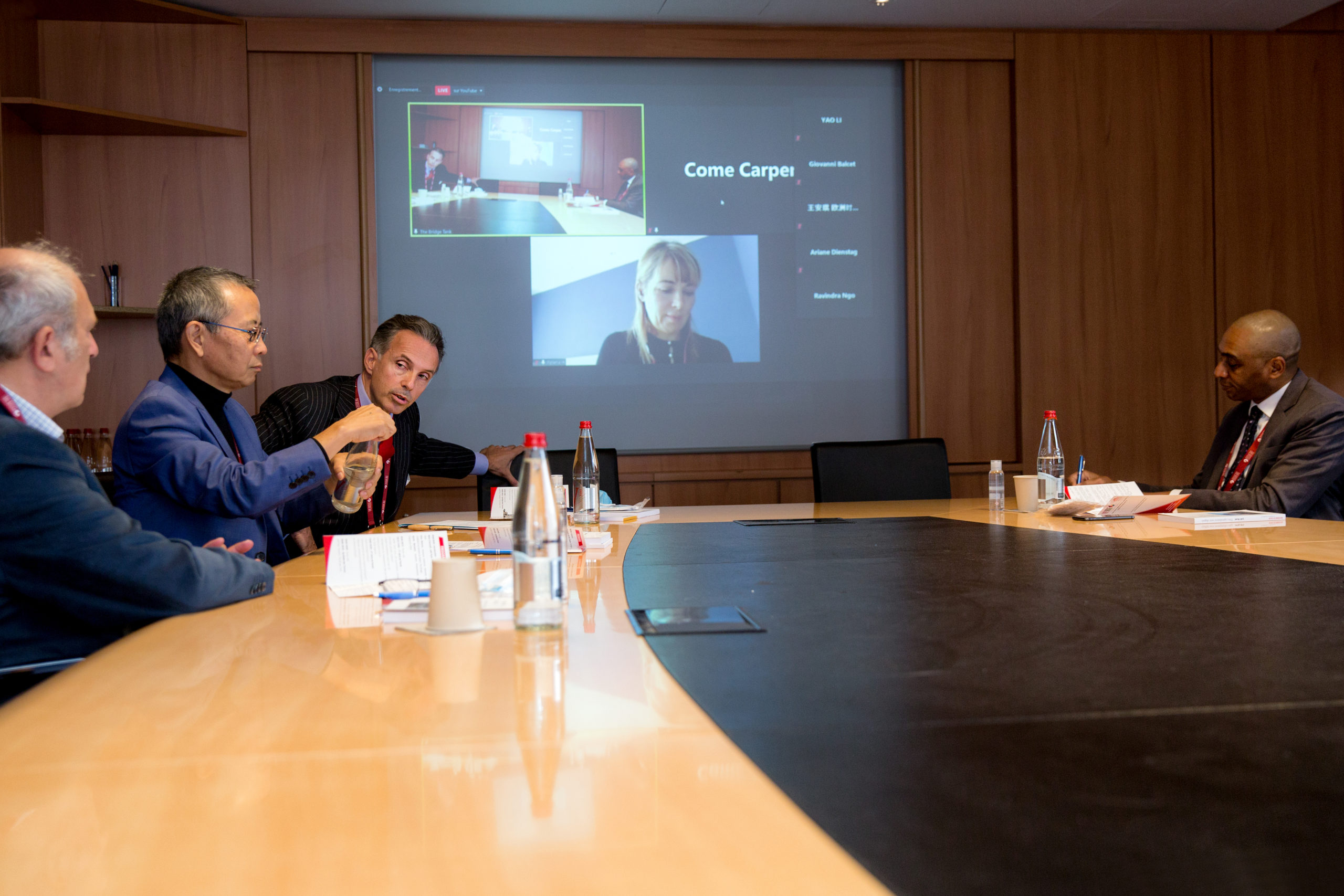To outline a new vision for Europe and, consequently, the challenges of its relationship with China, François Loos, former French Minister of Industry and Foreign Trade, Fatima Hadj, Member of the Bill and Melinda Gates Foundation’s Sustainable Development Goals “Goalkeeper” Community, Alex Wang, Honorary President of the Association Transition Ecologique et Solidaire Française et Chinoise (TESFEC) and Henri de Grossouvre Honorary President of Paris Berlin Moscow met under the leadership of Jean-Claude Beaujour, member of the Board of the Bridge Tank and Vice President of France-Amériques.
Jean-Claude Beaujour noted that the EU has an opportunity to rebalance its global relations, but asks if its governments are ready. Relocation meets a complex reality: what is the business vision of Euro-chinese relations and suggests that it is time to explain to citizens that those on the ground think differently and what the real options are.
François Loos insisted on the necessary restructuring of Europe-China relations, which are too much hampered by bilateral and non-EU relations. Europe must assert itself as a community, and review the mode of governance (going beyond majority voting). For example, photovoltaic production in Europe is compromised by Chinese imports. European producer countries should be favoured. China will have to put in place concrete incentives to enforce the laws in force. Its government has passed a law forbidding unequal treatment of Chinese and foreign companies. But this law is very slow to take hold and to be effective.
Henri de Grossouvre notes that the liberal era (1980-2020) is over. Thus the dogma of non-intervention by the state is being challenged in the EU itself. Example: Massive intervention by the US government. Europe must structure its governance.
Alex Wang believes that Europe-China relations will not stop because of Covid and that two subjects are emerging:
The necessity of rethinking the supply chain to make it more resilient and finding local production solutions.
Rethinking exchanges and collaborations in the field of corporate social responsibility.
Fatima Hadj sees the Covid crisis as exceptional because it impacts all socio-economic areas (unlike 2008 which was purely financial). It raises awareness of the need for economic sovereignty, which must be based on two pillars: management of economic dependence/independence; and finding areas of strategic cooperation, for example the electrification of uses.
Download the summary of the discussion (in French) here
Download the verbatim report (in French) here

